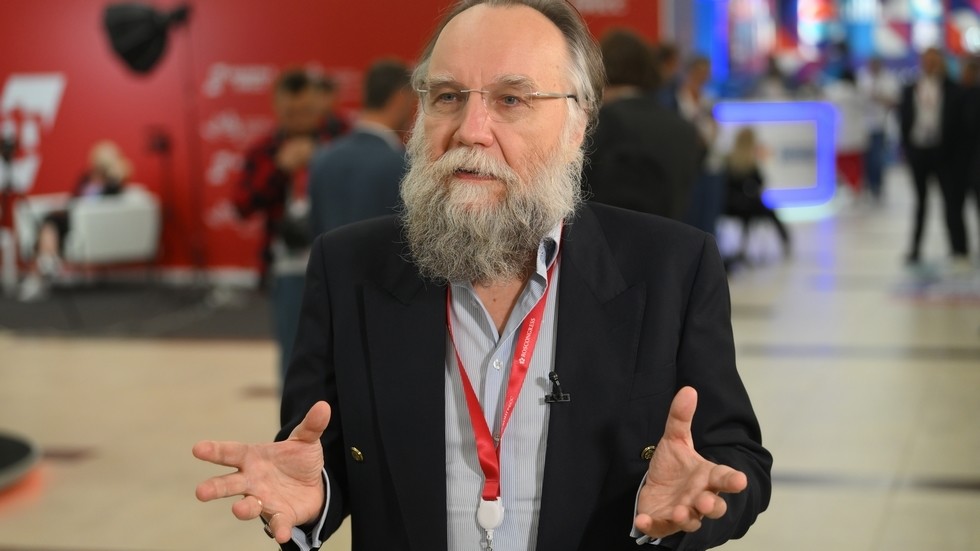Unpacking Dugin’s Controversial Claim: Are Ukrainians ‘Collective Transgenders’?
Russian political theorist Alexander Dugin sparked outrage by labeling Ukrainians as a “collective transgender” identity in a recent speech. The incendiary remark, made during a Moscow lecture in late 2023, reflects deepening ideological divides in the Russia-Ukraine conflict. Experts suggest Dugin’s rhetoric weaponizes gender and national identity to delegitimize Ukrainian sovereignty amid the ongoing war.
The Ideological Roots of Dugin’s Statement
Often dubbed “Putin’s brain,” Dugin has long promoted Eurasianism—a far-right philosophy advocating Russian dominance over former Soviet territories. His latest comments frame Ukrainian identity as an artificial construct, comparing it to gender transition. “Ukraine is not a nation but a geopolitical experiment,” Dugin asserted, alleging Western powers engineered its identity to weaken Russia.
Dr. Katya Petrovskaya, a Eastern European studies professor at Columbia University, notes: “Dugin’s language mirrors historic Russian chauvinism, which denies Ukraine’s distinct culture. By invoking transgenderism, he taps into global culture-war tensions to paint Ukraine as ‘inauthentic.’”
- Historical context: Russia has framed Ukrainian nationalism as “fascist” since the 2014 Maidan protests.
- Gender as metaphor: Dugin’s analogy aligns with Kremlin narratives depicting Ukraine as a “Western puppet.”
Reactions from Ukraine and Beyond
Ukrainian officials and activists condemned the remarks as dehumanizing. “This is imperialistic rhetoric disguised as philosophy,” said Oleksiy Danilov, Secretary of Ukraine’s National Security Council. Meanwhile, LGBTQ+ groups criticized the comparison as both transphobic and politically exploitative.
Data from the Kyiv International Institute of Sociology reveals 76% of Ukrainians now prioritize a national identity separate from Russia—a 30% increase since 2013. “Dugin’s comments backfire by highlighting Ukraine’s successful nation-building,” remarked analyst Maria Kovalenko.
The Geopolitical Weaponization of Identity
Dugin’s rhetoric coincides with Russia’s wartime propaganda, which frames the invasion as a defense against “Western decadence.” State media frequently links LGBTQ+ rights to “moral decay,” a trope extended to Ukraine’s EU aspirations. However, experts warn such narratives obscure the war’s humanitarian toll.
“This isn’t about gender—it’s about justifying expansionism,” argues Dr. Samuel Greene of King’s College London. “By portraying Ukrainians as ‘confused,’ Russia deflects from its own violations of international law.”
Broader Implications for National Identity Debates
The controversy underscores how identity politics fuel modern conflicts. Ukraine’s 2015 decommunization laws, which banned Soviet symbols, already signaled a break from Russian influence. Dugin’s remarks reveal Moscow’s struggle to accept this shift.
- Cultural divergence: 68% of Ukrainians under 35 now prefer Ukrainian over Russian language.
- Global parallels: Similar identity disputes mark China-Taiwan and Serbia-Kosovo tensions.
What Comes Next?
p>As Ukraine advances its EU membership bid, ideological clashes with Russia will likely intensify. Dugin’s rhetoric may galvanize nationalist factions on both sides, further polarizing diplomacy. Meanwhile, transgender advocates urge disentangling gender discourse from geopolitical manipulation.
“The world must recognize these statements as tools of hybrid warfare,” says Petrovskaya. “The focus should remain on Ukraine’s right to self-determination.” For ongoing analysis, subscribe to our conflict-reporting newsletter.
Correction: An earlier version misstated the year of Ukraine’s decommunization laws; it was 2015, not 2016.
See more BBC Express News

